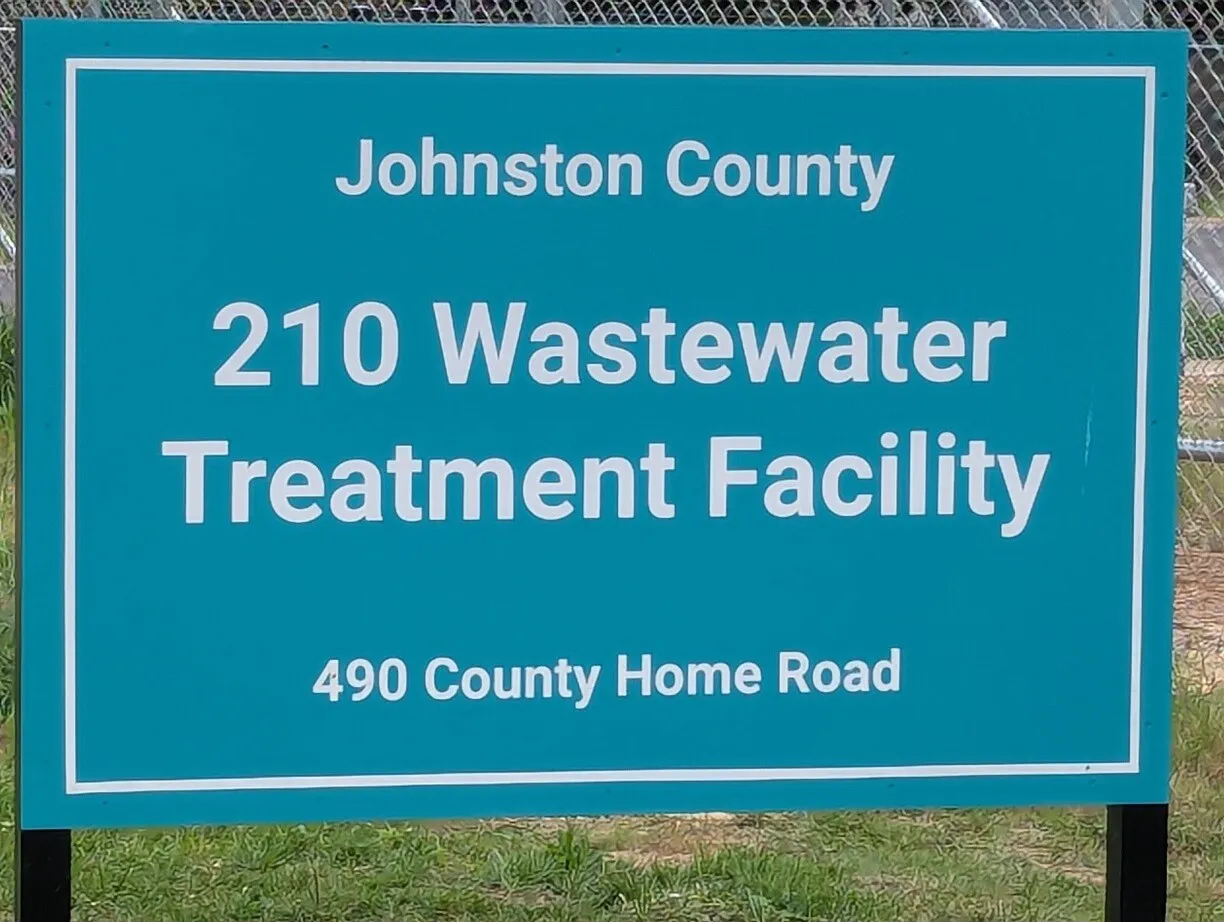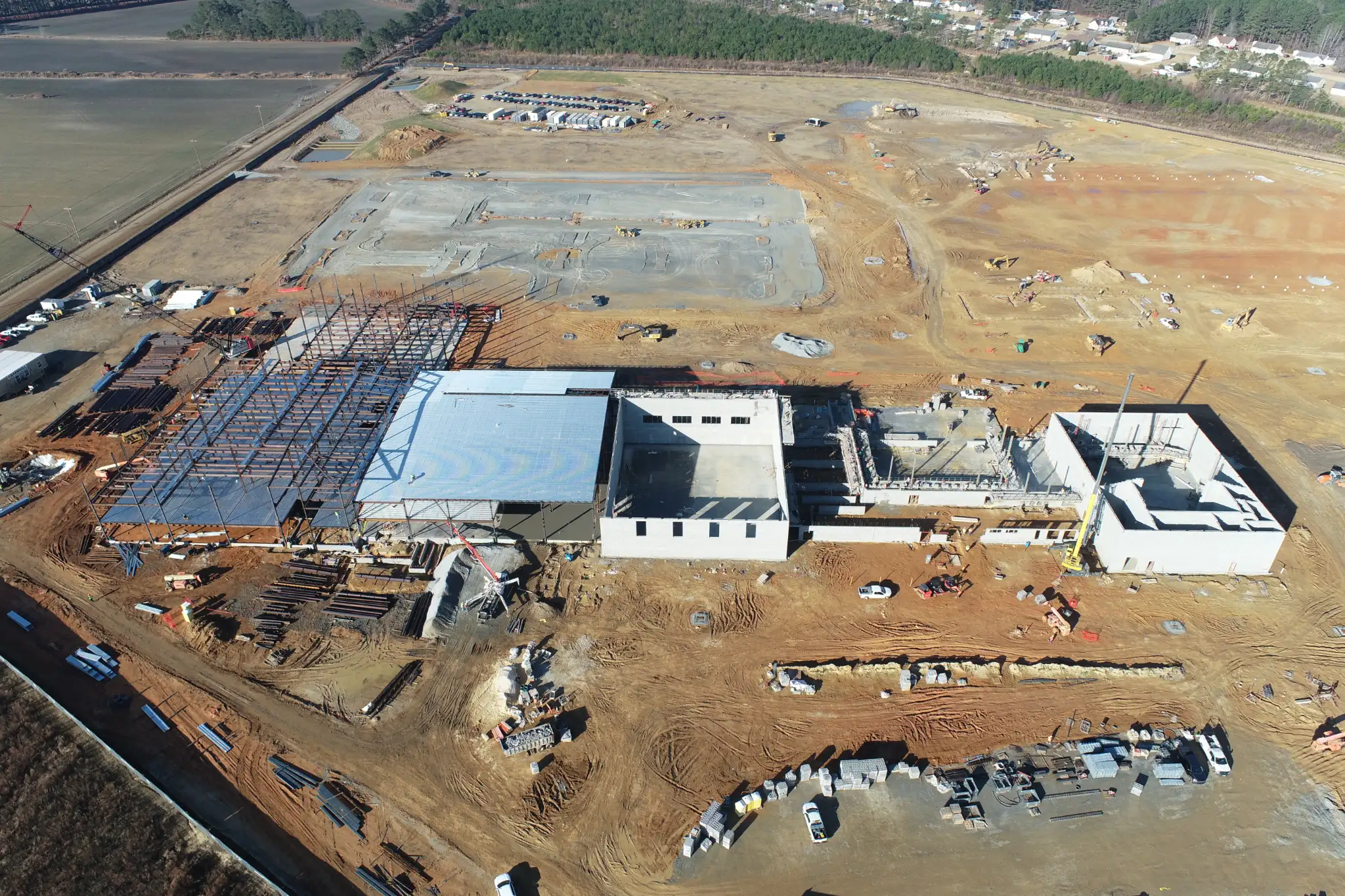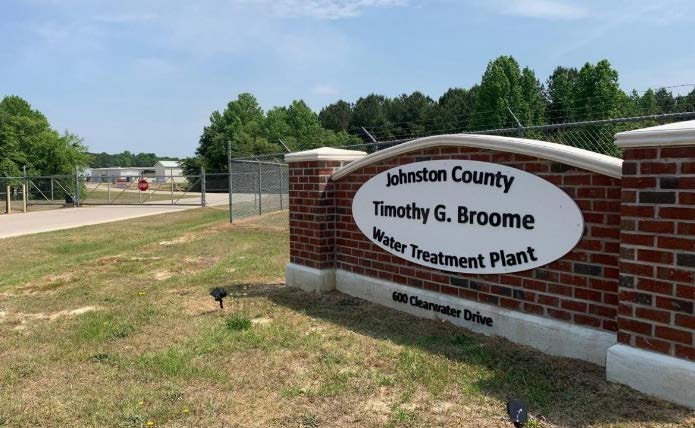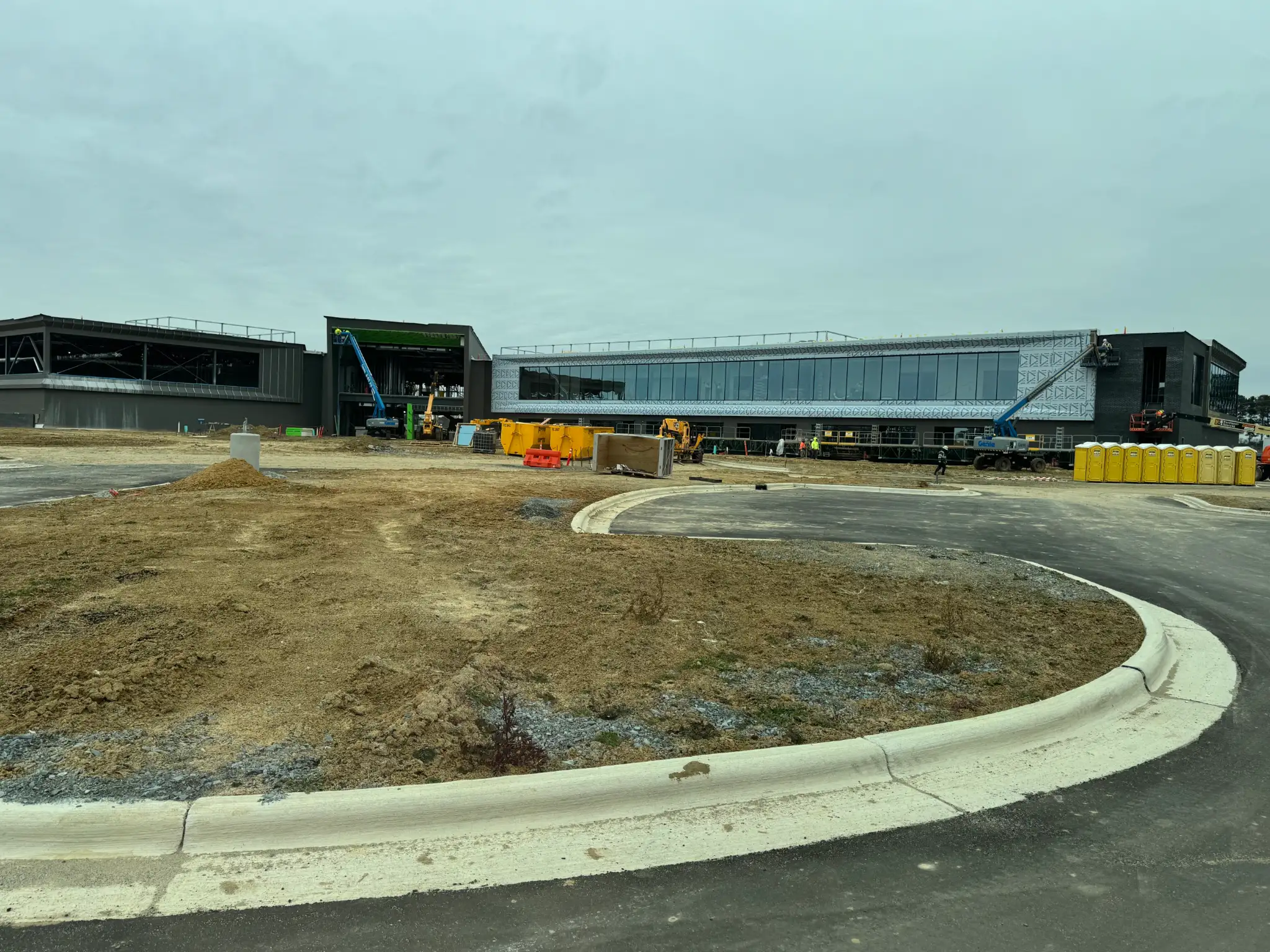Learn about Johnston County, North Carolina including our News & Press Releases, Projects, and Team.
Talk to us
Have questions? Reach out to us directly.
Learn about Johnston County, North Carolina including our News & Press Releases, Projects, and Team.
About Johnston County, North Carolina
- Incorporated in
- 1746
- Population
- 215,999
- Total Bonded Debt Outstanding for the General Fund
- $286,275,000
The County was incorporated in 1746 and was formed largely from Craven County. Located in the mid-central section of the State and the western segment of the coastal plains region, the County contains approximately 795 square miles.
The County is the fastest growing county in the State according to the United States Department of Commerce, Bureau of the Census 2020 census data. In particular, the townships along the Johnston County/Wake County line have experienced significant growth over the past 20 to 30 years. As the population expands and transportation networks improve, the County is experiencing growth further east into central areas of the County. A significant factor to such growth is the County’s proximity to the Research Triangle Park (“RTP”) and to the City of Raleigh, the State’s capital and the major urban center of the State’s Coastal Plains region where urban development is heavily concentrated. The County offers diversified housing options which, when coupled with the job growth of the region, favorably positions the County to capitalize upon new and expanding commercial and industrial opportunities.
The County is uniquely positioned within the geographic center of the State. The Town of Smithfield, the County seat, and the Town of Benson are located midway along the Eastern Seaboard of the United States and benefit from the intersection of transcontinental Interstate 40 and Interstate 95. In addition, the Town of Selma offers a railhead at which the Norfolk-Southern Railroad intersects the CSX mainline.
Image Gallery
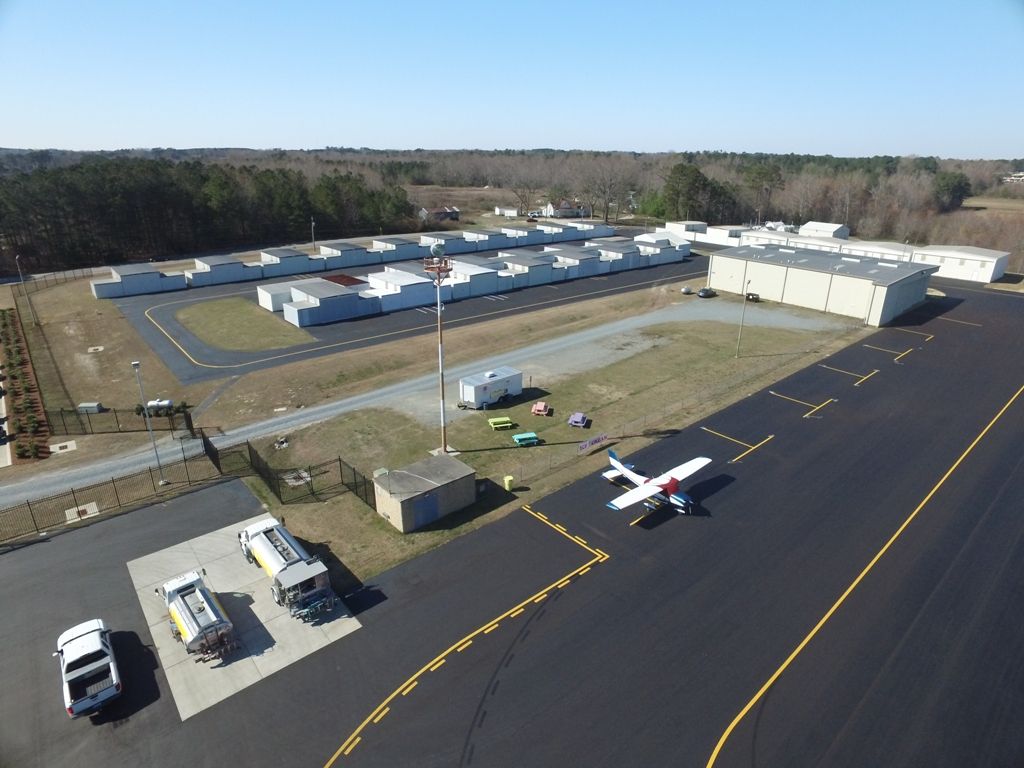


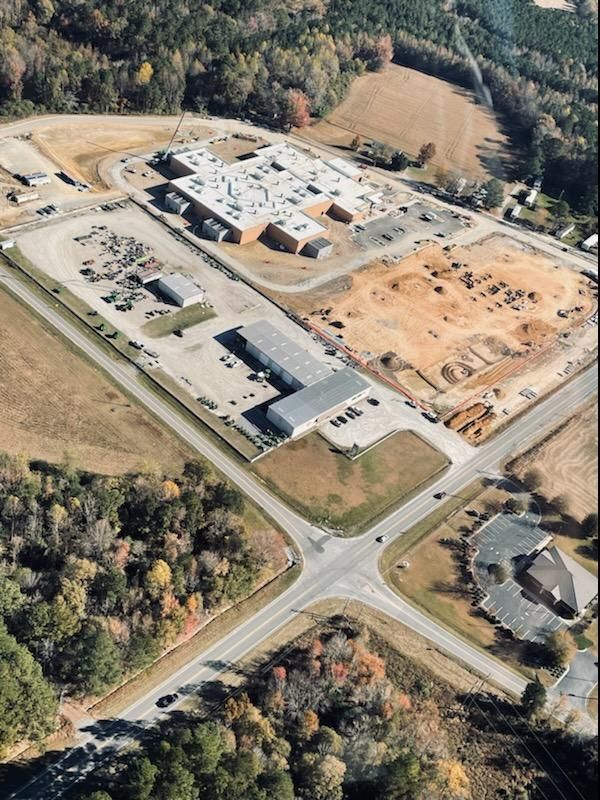


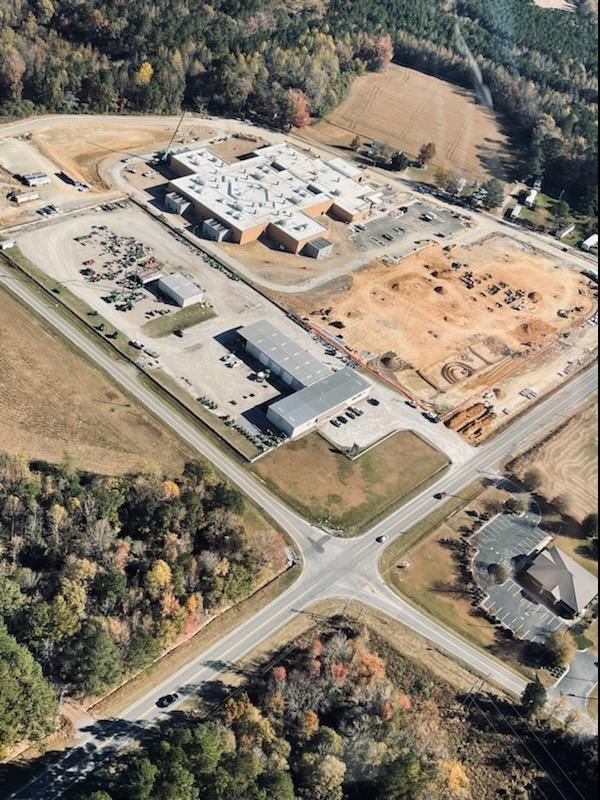


News
BENSON WILL BE HOME TO $1 BILLION RARE EARTH MAGNET FACILITY
RTP-based Vulcan Elements Will Create 1,000 Manufacturing Jobs in Johnston County
Johnston County, N.C. – November 18, 2025. Vulcan Elements, a manufacturer of Neodymium Iron Boron rare earth magnets, has selected Benson, North Carolina, for a $1 billion rare earth magnet manufacturing facility. Founded in Research Triangle Park, Vulcan Elements recently announced a $1.4 billion partnership with the U.S. government to expand to 10,000 metric tonnes of magnet manufacturing capacity – a critical milestone toward onshoring an essential supply chain for American economic dynamism and national security. The company will execute this partnership in its newly announced facility in Benson, which is expected to exceed 1 million square-feet and create 1,000 jobs.
Governor Josh Stein joined U.S. Senator Ted Budd, N.C. Commerce Secretary Lee Lilley, state legislators sand Vulcan Elements’ executives earlier today in making the announcement. “This is a big win for North Carolina,” Governor Stein told the gathering. “This veteran-owned company will enable North Carolina to keep leading the way on national security, as well as building the economy of the future,” he added. The jobs and investment Vulcan Elements is bringing will add $2.5 billion to the state’s economy over the coming 12 years, the Governor noted. “So Vulcan, welcome home to North Carolina,” he said.
R.S. “Butch” Lawter, Jr., Chairman of the Johnston County Board of Commissioners, expects the project to add significant diversification to the local economy. “This important opportunity brings new jobs, new public revenues and state-of-the-art technology to Johnston County,” Lawter said. “Equally important, this company, this facility and our county will be a key asset in U.S. national security and the nation’s competitive economic position. We look forward to supporting Vulcan Element as it creates its home here and goes about its historic work.”
Vulcan Elements was founded in 2023. Its site search took place during the past year as the company considered locations across numerous states. Benson accommodated Vulcan’s need for scale, power, transportation systems and workforce. Its personnel will be drawn regionally and include a broad range of technical, scientific and logistics professionals — making Benson’s equidistance to Triangle research universities and eastern North Carolina’s numerous military bases a key selection factor.
“Johnston County’s support for Vulcan’s mission and commitment to our site search were clear at every step,” says John Maslin, CEO of Vulcan Elements. “From the beginning, the County understood Vulcan Elements’ aggressive timeline for expansion, and fully aligned with the company’s needs to drive its long-term success: world-class talent, robust and reliable infrastructure, and high-quality workforce training. In the years ahead, Vulcan looks forward to building on this foundational relationship with the County as we create 1,000 new jobs and continue to draw on and invest in the best qualities of the County,” Maslin adds.
Vulcan Elements will operate out of Crosspoint Logistics Center, a 90-acre industrial property at 230 Morgan Road in Benson. The site currently houses a 501,000-sq.-ft industrial building, which Vulcan will expand to encompass over 1 million square-feet. In March 2022, Johnston County Commissioners approved financial incentives to support development of the Class A+ facility, which sits at the junction of I-95 and I-40 less than a half-hour drive from downtown Raleigh. When Raleigh-based Edgewater Ventures unveiled plans for the site, the development was the largest speculative industrial facility ever built in the Raleigh-Durham MSA.
“Our County Commissioners showed incredible vision in incentivizing Crosspoint Logistics Center, and that bold leadership is now generating extraordinary results,” says Ed Aldridge, a Clayton business leader who chairs the Johnston County Economic Development Advisory Board, which brings together municipal and at-large representatives to consider job creation strategies. “Our product development agenda involves innovative partnerships with best-in-class developers like Edgewater, and in Vulcan Elements, Johnston County is seeing the lucrative results that can occur when you link a strategically-positioned location with an amenity-rich building,” Aldridge says.
With immediate access to I-95, the Vulcan Elements site will bring visibility to Benson, along with job creation and economic investment. “There were many quality communities across the country that Vulcan assessed before selecting Benson for their investment,” says Benson Mayor Max Raynor. Proximity to exceptional ground transportation, a dynamic labor market and strong leadership from county and municipal officials all converged to distinguish Benson. “I’m grateful to our economic development partners for the commitment and capability they showed in ushering this exciting opportunity to fruition,” Raynor says.
Vulcan Elements will be among the first companies to take advantage of the new $40 million Advanced Manufacturing Training Center in neighboring Four Oaks. Opened in September, the 67,000-sq.-ft. facility is operated by Johnston Community College. Created with state and county financial support, the facility is the product of advocacy by the I-95/I-40 Crossroads of America Economic Development Alliance, a five-year-old partnership that is energizing economic development from Four Oaks to Dunn with an emphasis on industrial infrastructure, economic advocacy and workforce readiness. “This big win for Benson and Johnston County is evidence that nothing beats collaboration and partnership when it comes to landing sustainable, high-wage jobs,” says Harold T. Keen, Chairman of the Crossroads of America Alliance. “It’s exciting to see all the hard assets come together, but at the end of the day this remarkable success occurred because leaders here worked confidently, worked smart and worked together to bring Vulcan Elements to Benson.”
The company’s operations are expected to have a significant economic and fiscal impact on Johnston County’s economy. Its payroll alone will result in nearly $90 million in annual impact. An analysis by Dr. Michael Walden, William Neal Reynolds Distinguished Professor Emeritus at N.C. State University, determined the facility will add $169 million to Johnston County’s gross domestic product (GDP) and result in more than $950,000 in new municipal and county tax revenues. “Numbers tell an exciting story about Vulcan Elements’ arrival to Johnston County and the Town of Benson, but this project speaks just as compelling to our spirit of collaboration and strong sense of duty to the nation – and you can’t assign a dollar value to that,” says Chris Johnson, Director of the Johnston County Office of Economic Development. “I’m proud to have worked alongside so many dedicated partners who came together to pave the way for this huge win for our community and our nation,” Johnson says.
The Johnston County Economic Development Office (JCEDO) facilitates value-added interaction between government, education, and the private sector in encouraging and promoting job creation and economic investment in Johnston County. A unit of county government, JCEDO collaborates with local, regional, and statewide partners and allies in providing confidential location assistance to businesses and technical support to the county’s 11 municipalities. Its menu of services includes customized digital mapping, labor and wage analysis, site readiness assistance and incentive packaging
60,000-Sq.-Ft Facility Marks Continued Growth for Regional Airport and Johnston County

SMITHFIELD – Johnston County Regional Airport (JNX) will be home to a $22 million facility that will house the North Carolina Highway Patrol’s Special Operations Division. Local and state officials announced plans for the 60,000-sq.-ft. complex on Monday in front of about 150 invited guests that included outgoing N.C. Secretary of Transportation Joey Hopkins, numerous state legislators and county commissioners, mayors from three nearby municipalities, and sheriffs from Johnston, Harnett, Wake and Wayne counties.
“We are excited for what this new facility will bring to our state and for our growing partnership with Johnston Regional Airport,” said Colonel Freddy L. Johnson, Jr., Commander of the State Highway Patrol. “This groundbreaking is setting the stage for the expanded capabilities of our State Highway Patrol Aviation Unit, which equates to furthering our mission of saving lives and providing the best in law enforcement services to the people of North Carolina.”

The facility will be located near the intersection of Swift Creek Road and U.S. Highway 70 Business in Smithfield. Groundbreaking will take place in late October, said David Harris, Director of JNX. Bobbitt Construction will design and build the space, which will contain state-of-the-art air and water rescue equipment, training rooms, offices, and a hangar area. SHP currently houses these resources across several sites, and the new center at JNX will enable the Patrol to consolidate Special Operations resources under one roof. JNX will own the facility and lease it to the SHP on a long-term basis, Harris said.
“The Center will be home to helicopter operations, tactical units, motorcycle teams and other specialized groups that answer the call when North Carolinians need them most,” said Ken Starling, JNX Airport Board Chairman. “To have this level of capability based right here in Johnston County is both an honor and a responsibility.”

Local elected officials similarly welcomed the announcement. “This facility is going to be more than asphalt and concrete and steel,” said Butch Lawter, Chairman of the Johnston County Board of Commissioners. “It’s a commitment to lives, emergencies and public safety, which ties in well with our six high county priorities. So, to say we’re behind this project is a gross understatement,” Chairman Lawter told the gathering.
Monday’s announcement is the latest evidence of JNX’s rapid growth. In July, the airport closed on the purchase of an additional 26.4 acres on the property’s east side adjacent Highway 70 Business. The acquisition will facilitate expansion of hangar space to accommodate as many as 40 business jets. Plans also are coming together to construct an 85-foot control tower on the airport’s east side, JNX’s David Harris said.

“It’s taken a lot of effort to get here today,” said State Representative Larry Strickland, noting that state funding for the facility occurred across three separate appropriations bills over five years. “It is a great time to be a citizen of Johnston County. We all work hard. We trust each other. And when you’ve got all that going on, great things can happen for the County,” Rep. Strickland said.
“The State Highway Patrol is the front line of our law enforcement in North Carolina,” said State Senator Benton Sawrey. “I’m excited to see this facility being built here in Johnston County, and I hope this is the first of many expansion projects to come.” In addition to a growing population and job-base, modern transportation systems and other assets, “we have the community partnerships and vision to make it happen,” Sen. Sawrey said.

In his keynote remarks at this event, SHP Commander Johnson noted the value of legislative leadership in ushering plans for the new facility to fruition. “One of the things that made this decision so easy was strong support from the General Assembly and the support of Johnston County,” Col. Johnson said.
Data compiled by the N.C. Department of Transportation’s Aviation Division confirm JNX’s growing economic, commercial and civic significance. The facility ranks third in the state in terms of take-offs and landings – totaling nearly 102,000 last year, DOT found. The airport supports 1,385 jobs and generates nearly $21 million in tax revenue and almost $318 million in total impact. Blue Line Aviation, a national flight school, trains commercial pilots at JNX, operating flight simulators, hangar space, classrooms, dining facilities and maintenance areas there. JNX is also home base for Duke Life Flight, which operates two state-of-the-art rotor wing critical-care air ambulances from offices and hangar space in Smithfield.

“JNX is rapidly becoming one of Johnston County’s most important economic development assets,” said Ed Aldridge, Chairman of the Johnston County Economic Development Advisory Board and a member of the JNX Authority Board. “It’s always been an important resource for our community, but it is now increasingly a regional transportation asset,” Aldridge says, noting its proximity to Research Triangle Park, Centennial Campus, the region’s universities and other business attractions. “The launch of the SHP’s Special Operations Center is just the latest step along an ambitious multi-year path toward making JNX a key resource for residents and businesses in Johnston County and beyond.”
Operating since 1978, Johnston Regional Airport (JNX) serves the greater Raleigh metropolitan area and is a convenient gateway to the Research Triangle Region. JNX also is home to the Johnston County Economic Development Office (JCEDO).
Illinois-based Wylie Capital Will Build $55 Million Commerce Hub in Clayton
Johnston County, N.C. – May 5, 2025. Johnston County Commissioners unanimously approved an economic development agreement with Wylie Capital this morning in support of creating a 382,000-sq.-ft. “mini” industrial park in Clayton. Headquartered in Deerfield, Ill., Wylie Capital is a developer of industrial and commercial real estate in the Midwest and Sun Belt. It plans to build what will be called the Clayton Commerce Center on 34 acres off Clayton Boulevard (i.e., U.S. Highway 70 Business) near Grifols, Novo Nordisk and several other manufacturers.
“Today’s complex global economy requires manufacturers to move quickly when emerging opportunities arrive,” said R.S. “Butch” Lawter, Jr., Chairman of the Johnston County Board of Commissioners. “They need modern industrial space that’s ready for occupancy. Without partnerships with private developers, we would have to turn away projects that would otherwise be a solid fit for us. Our performance-based incentive grants have proven effective in building the kind of economic development product Johnston County needs to compete for high-wage jobs.”
Clayton Commerce Center will include three buildings, the centerpiece of which will accommodate as many as 100 workers. Constructing the complex will generate $32.4 million in economic output for Johnston County’s economy, according to an economic impact assessment by Dr. Michael Walden, William Neal Reynolds Distinguished Professor Emeritus at North Carolina State University and President of Walden Economic Consulting, LLC. Once occupied and operational, the facility could add $66.5 million to the county’s annual GDP and generate nearly $536,000 in new tax revenues for county and municipal governments, Dr. Walden found.
The County’s agreement includes a partial leasing guarantee for the initial two years after completion of the building, if necessary, while the county’s economic development team works with Wylie Capital and its brokerage partner, Colliers International, to recruit industrial employers to the new space. The arrangement also anticipates a series of cash grants from the County based on ad valorem tax payments derived from the complex for five years, assuming job creation and investment provisions are met.
County Building-Lease agreements previously helped drive development of a 12-acre property between Clayton and Smithfield now completely occupied by cleanroom space provider AdvanceTEC and for a 264,000-sq.-ft. industrial building in Smithfield developed by Merus (formerly Al. Neyer), which is also fully leased. “More and more companies are looking for or need existing buildings,” explains Chris Johnson, Director of the Johnston County Office of Economic Development. “The bar is constantly rising.” Johnson says that thus far in 2025, his office has been unable to respond to 25 site selection projects because the County lacked a ready building that fit client specs.
Building Lease grants are a win-win for the County and its private development partners. Companies are better able to manage the risk associated with Class A spec buildings while County economic development leaders are able to influence the types of employers ultimately consuming new space. “We strive for economic diversification and optimal use of our limited real estate,” says Ed Aldridge, Chairman of the Johnston County Economic Development Advisory Board. “Our focus is typically on high wage industries like life sciences and advanced manufacturers due to their broad economic impact. The Building-Lease program is tool that helps us bring the best jobs to the right places,” says Aldridge.
In addressing County Commissioners in advance of their vote, Wylie Capital Founder and President Jason Simon said the Building Lease arrangement and Economic Development Incentive Grant were important factors in his firm’s plans for Clayton Commerce Center. “If it weren’t for these incentives [the project] would be much more challenging, especially in a time like today where there’s an awful lot going on that makes it very challenging for developers like us to bring projects to fruition,” said Simon, whose company currently owns and operates more than one million square-feet of commercial space in the Midwest and the Sun Belt.
“We have the chance to invest anywhere in the country,” Simon said. “We love the tailwinds associated with the Carolinas, and in particular North Carolina and your part of North Carolina. You have a wonderful county with wonderful labor dynamics and wonderful educational institutions, and from our perspective it really makes it a very attractive place to invest.” Simon also commended the County’s economic development leadership. “You have a wonderful team that’s really helped us connect the dots on how to bring this to fruition,” he said.
The Johnston County Economic Development Office (JCEDO) facilitates value-added interaction between government, education, and the private sector in encouraging and promoting job creation and economic investment in Johnston County. A unit of county government, JCEDO collaborates with local, regional, and statewide partners and allies in providing confidential location assistance to businesses and technical support to the county’s 11 municipalities. Its menu of services includes customized digital mapping, labor and wage analysis, site readiness assistance and incentive packaging. For additional information, visit www.GrowWithJoCo.com
Projects
Team
J. Chad McLamb, CPA
Tyson B. Radford, CLGFO
Kathy Kyle
Talk to us
Have questions? Reach out to us directly.


